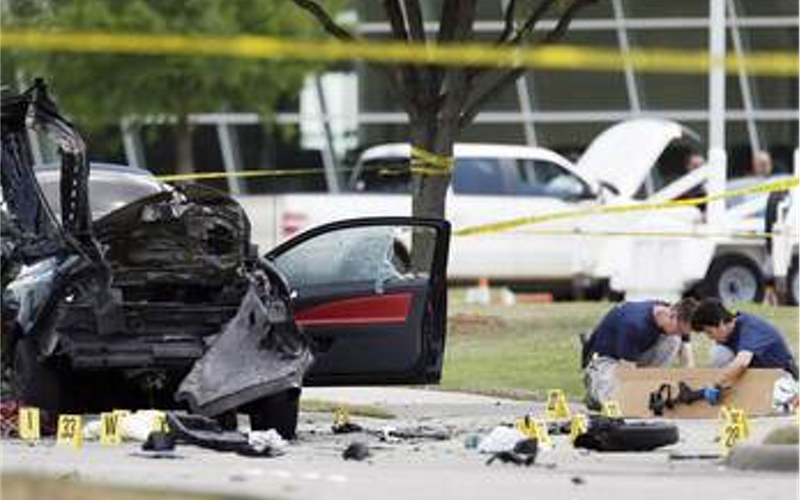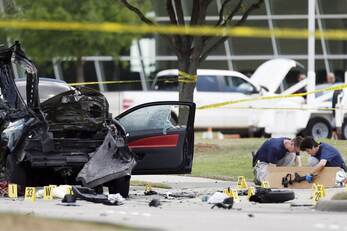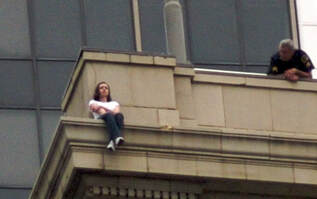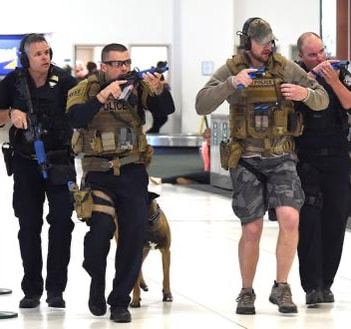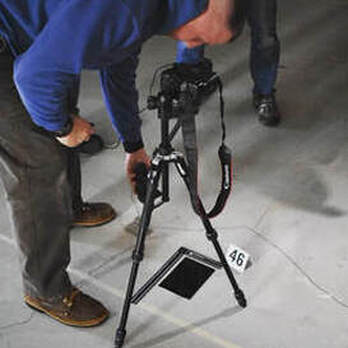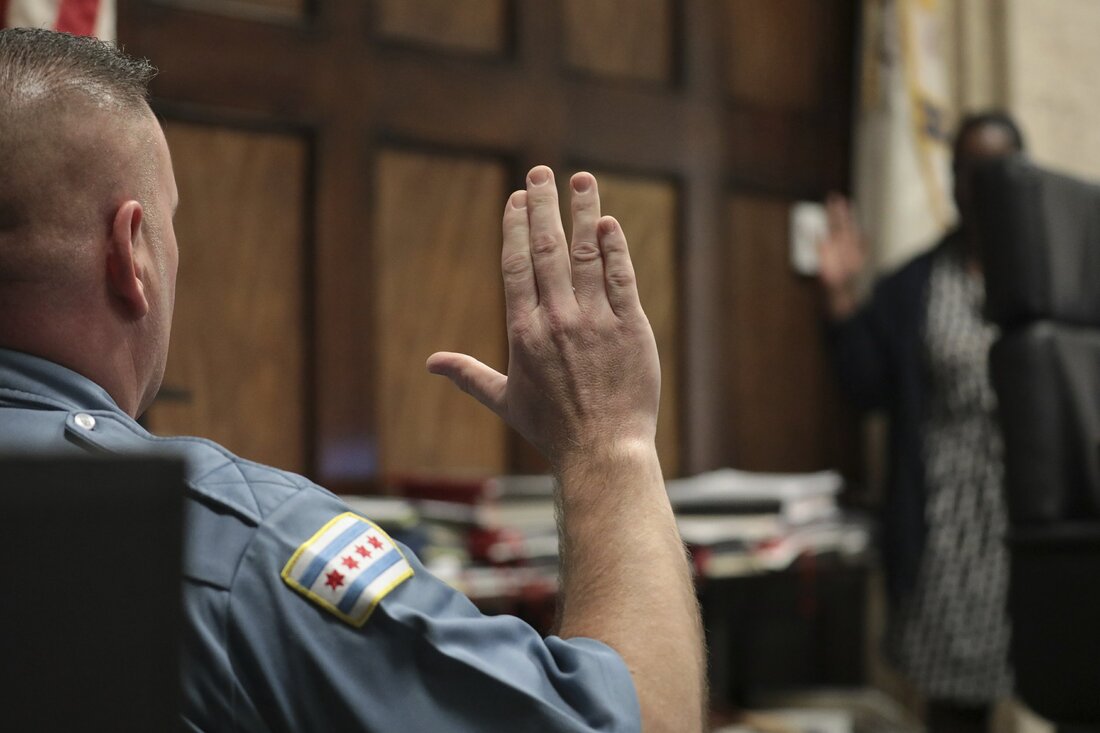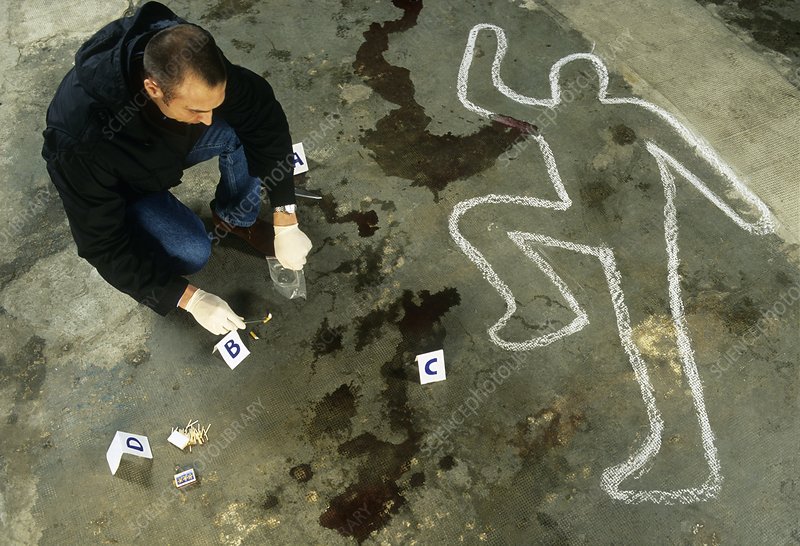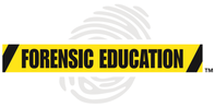This EXTENSIVE 3-DAY class is designed to teach you how to handle any crime scene. Whether it is a car break, a burglary or a suspicious death, this class will teach you the tools necessary to process the scene. Great for detectives and patrol officers. There is no “Death by Powerpoint” in this class. Participants will use all types of processing materials.
Topics covered include:
We offer hands on trainingthrough practice exercisesand provide attendees with all instructional materials. You will learn by doing. No falling asleep in your chair while the instructor drones on about how great they are. Fast paced and interactive.
Questions can be directed to Forensic Education 603-234-3769 or email [email protected]
Topics covered include:
- Crime Scene Documentation and Photography (Point & shoot and DSLR)
- Fingerprinting for ALL Surfaces and we mean ALL!
- Footwear, Tire impressions and Tool Marks
- Trace Evidence – Light Sources, DNA Evidence, Blood Evidence, Hair, Fibers etc.
We offer hands on trainingthrough practice exercisesand provide attendees with all instructional materials. You will learn by doing. No falling asleep in your chair while the instructor drones on about how great they are. Fast paced and interactive.
Questions can be directed to Forensic Education 603-234-3769 or email [email protected]
Crime Scene Processing
Burlington, MA
June 7-9 2021
Price $399.00
Burlington, MA
June 7-9 2021
Price $399.00
This EXTENSIVE 3 DAY class is designed to teach you to handle any crime scene. Whether it be a car break, burglary or a suspicious death. Great for detectives and patrolmen.
Topics covered include:
• Do you process crime scenes? Either as a first responder or a detective?
• Do you want to be sure to find all types of evidence at a crime scene?
• Do you need a refresher? Has it been some time since you learned new techniques?
Course Layout
Crime Scene Investigation
You are not trash collectors. We must differentiate from trash and evidence. Learn the numerous types of evidence that are present at crime scenes. This includes evidence that is visible to the human eye and those that need to be developed.
Fingerprinting
An introduction to the classification of fingerprints and the ridge patterns. Students will learn how to use traditional powders to develop fingerprints on non-porous surfaces as well as more challenging substrates like paper, tape, and textured surfaces. Students will be able to set up their own cyanoacrylate fuming chamber and use various chemicals to develop friction ridges on all types of surfaces. Other techniques include magnetic powders, small particle reagents, and chemicals. Development of bloody fingerprints using chemicals will be demonstrated and practiced.
Impression Evidence
Footwear, tire and tool marks can be valuable pieces of the crime scene puzzle. Students will use different types of equipment to collect impression evidence. This includes foot impressions in dirt, snow (if available) and on carpets. Students will collect pry marks made by a selection of tools and match the evidence to the tools used to create the marks.
Photography and Documentation
Introduction to crime scene photography techniques. Students will practice using different lighting techniques to capture the best photographs possible at a crime scene. While this is an introduction to photography, students will learn how to properly adjust for light using aperture, shutter speeds, and flashes. Even point and shoot cameras will be discussed.
Students will practice sketching crime scenes using numerous techniques. The proper sketching technique for different types of crime scenes will be discussed and practiced.
Alternative Light Sources
Students will use different light sources to locate trace evidence in mock crime scenes. Locating, photographing and collecting trace evidence will be practiced. Fluorescent powders will also be used to develop fingerprints on numerous surfaces.
Topics covered include:
- Crime Scene Documentation and Photography
- Fingerprinting for All Surfaces
- Footwear, Tire and Tool Marks
- Trace Evidence – Light Sources, DNA Evidence, Blood Evidence
- We offer hands-on training through practice exercises and provide attendees with all instructional materials.
• Do you process crime scenes? Either as a first responder or a detective?
• Do you want to be sure to find all types of evidence at a crime scene?
• Do you need a refresher? Has it been some time since you learned new techniques?
Course Layout
Crime Scene Investigation
You are not trash collectors. We must differentiate from trash and evidence. Learn the numerous types of evidence that are present at crime scenes. This includes evidence that is visible to the human eye and those that need to be developed.
Fingerprinting
An introduction to the classification of fingerprints and the ridge patterns. Students will learn how to use traditional powders to develop fingerprints on non-porous surfaces as well as more challenging substrates like paper, tape, and textured surfaces. Students will be able to set up their own cyanoacrylate fuming chamber and use various chemicals to develop friction ridges on all types of surfaces. Other techniques include magnetic powders, small particle reagents, and chemicals. Development of bloody fingerprints using chemicals will be demonstrated and practiced.
Impression Evidence
Footwear, tire and tool marks can be valuable pieces of the crime scene puzzle. Students will use different types of equipment to collect impression evidence. This includes foot impressions in dirt, snow (if available) and on carpets. Students will collect pry marks made by a selection of tools and match the evidence to the tools used to create the marks.
Photography and Documentation
Introduction to crime scene photography techniques. Students will practice using different lighting techniques to capture the best photographs possible at a crime scene. While this is an introduction to photography, students will learn how to properly adjust for light using aperture, shutter speeds, and flashes. Even point and shoot cameras will be discussed.
Students will practice sketching crime scenes using numerous techniques. The proper sketching technique for different types of crime scenes will be discussed and practiced.
Alternative Light Sources
Students will use different light sources to locate trace evidence in mock crime scenes. Locating, photographing and collecting trace evidence will be practiced. Fluorescent powders will also be used to develop fingerprints on numerous surfaces.
This course is meant to help train first responders in de-escalation and crisis intervention techniques. The course will utilize cutting-edge and evidence-based intervention techniques. The course will teach first responders how to utilize verbal intervention techniques as a control strategy to gain tactical control of a situation with the use of words. Police departments across the country are being inundated with calls from individuals experiencing a mental health emergency. This course will review mental illness, suicide, and defusing/de-escalation techniques and is taught by Dr. Larry Kelly, a Public Safety Psychologist
Location: Berwick Police Department
20 Wilson Street Berwick ME 03901
Time: 9am-430pm
Cost: $250.00
20 Wilson Street Berwick ME 03901
Time: 9am-430pm
Cost: $250.00
Deescalation Techniques and Emotionally Disturbed Individuals Berwick ME January 29-30
The Law Enforcement Critical Incident Management (L.E.C.I.M) course is a certified curriculum that provides responding officers Pre-Swat Deployment training and alternatives in response to critical incidents.
Law Enforcement Officers are expected to respond to mass casualty incidents to stabilize them, bring order, and/or bring them to an end. Many of the responding officers may have never encountered these types of situations and lack experience, training, critical thinking skills, and the leadership needed to respond to these situations.
Instructors use their personal experiences and analyze major case studies in this course. These comprehensive case studies encompass the use of multi-media materials to dissect national and international incidents. This class is essential for law enforcement officers!
The 24-hour classroom instruction covers various topics related to the management and handling of Law Enforcement Critical Incidents.
Law Enforcement Officers are expected to respond to mass casualty incidents to stabilize them, bring order, and/or bring them to an end. Many of the responding officers may have never encountered these types of situations and lack experience, training, critical thinking skills, and the leadership needed to respond to these situations.
Instructors use their personal experiences and analyze major case studies in this course. These comprehensive case studies encompass the use of multi-media materials to dissect national and international incidents. This class is essential for law enforcement officers!
The 24-hour classroom instruction covers various topics related to the management and handling of Law Enforcement Critical Incidents.
Location: Enfield Police Department
293 Elm Street Enfield CT 06082
Time: 8-4:00pm
Cost: $399.00 / PP
293 Elm Street Enfield CT 06082
Time: 8-4:00pm
Cost: $399.00 / PP
Critical Incident Management for Law Enforcement - Enfield CT March 9-11 2020
Location: Cass County Sheriff’s Office
Atlantic Fire Department
1203 SW 7th St
Atlantic IA 50022
Time: 9-4pm
Cost: $399.00
Atlantic Fire Department
1203 SW 7th St
Atlantic IA 50022
Time: 9-4pm
Cost: $399.00
This EXTENSIVE 3 DAY class is designed to teach you to handle any crime scene. Whether it be a car break, burglary or a suspicious death. Great for detectives and patrolmen.
Topics covered include:
Crime Scene Documentation and Photography
Fingerprinting for All Surfaces
Footwear, Tire and Tool Marks
Trace Evidence – Light Sources, DNA Evidence, Blood Evidence
We offer hands-on training through practice exercises and provide attendees with all instructional materials.
Who should attend?
• Do you process crime scenes? Either as a first responder or a detective?
• Do you want to be sure to find all types of evidence at a crime scene?
• Do you need a refresher? Has it been some time since you learned new techniques?
Course Layout
Crime Scene Investigation
You are not trash collectors. We must differentiate from trash and evidence. Learn the numerous types of evidence that are present at crime scenes. This includes evidence that is visible to the human eye and those that need to be developed.
Fingerprinting
An introduction to the classification of fingerprints and the ridge patterns. Students will learn how to use traditional powders to develop fingerprints on non-porous surfaces as well as more challenging substrates like paper, tape, and textured surfaces. Students will be able to set up their own cyanoacrylate fuming chamber and use various chemicals to develop friction ridges on all types of surfaces. Other techniques include magnetic powders, small particle reagents, and chemicals. Development of bloody fingerprints using chemicals will be demonstrated and practiced.
Impression Evidence
Footwear, tire and tool marks can be valuable pieces of the crime scene puzzle. Students will use different types of equipment to collect impression evidence. This includes foot impressions in dirt, snow (if available) and on carpets. Students will collect pry marks made by a selection of tools and match the evidence to the tools used to create the marks.
Photography and Documentation
Introduction to crime scene photography techniques. Students will practice using different lighting techniques to capture the best photographs possible at a crime scene. While this is an introduction to photography, students will learn how to properly adjust for light using aperture, shutter speeds, and flashes. Even point and shoot cameras will be discussed.
Students will practice sketching crime scenes using numerous techniques. The proper sketching technique for different types of crime scenes will be discussed and practiced.
Alternative Light Sources
Students will use different light sources to locate trace evidence in mock crime scenes. Locating, photographing and collecting trace evidence will be practiced. Fluorescent powders will also be used to develop fingerprints on numerous surfaces.
Topics covered include:
Crime Scene Documentation and Photography
Fingerprinting for All Surfaces
Footwear, Tire and Tool Marks
Trace Evidence – Light Sources, DNA Evidence, Blood Evidence
We offer hands-on training through practice exercises and provide attendees with all instructional materials.
Who should attend?
• Do you process crime scenes? Either as a first responder or a detective?
• Do you want to be sure to find all types of evidence at a crime scene?
• Do you need a refresher? Has it been some time since you learned new techniques?
Course Layout
Crime Scene Investigation
You are not trash collectors. We must differentiate from trash and evidence. Learn the numerous types of evidence that are present at crime scenes. This includes evidence that is visible to the human eye and those that need to be developed.
Fingerprinting
An introduction to the classification of fingerprints and the ridge patterns. Students will learn how to use traditional powders to develop fingerprints on non-porous surfaces as well as more challenging substrates like paper, tape, and textured surfaces. Students will be able to set up their own cyanoacrylate fuming chamber and use various chemicals to develop friction ridges on all types of surfaces. Other techniques include magnetic powders, small particle reagents, and chemicals. Development of bloody fingerprints using chemicals will be demonstrated and practiced.
Impression Evidence
Footwear, tire and tool marks can be valuable pieces of the crime scene puzzle. Students will use different types of equipment to collect impression evidence. This includes foot impressions in dirt, snow (if available) and on carpets. Students will collect pry marks made by a selection of tools and match the evidence to the tools used to create the marks.
Photography and Documentation
Introduction to crime scene photography techniques. Students will practice using different lighting techniques to capture the best photographs possible at a crime scene. While this is an introduction to photography, students will learn how to properly adjust for light using aperture, shutter speeds, and flashes. Even point and shoot cameras will be discussed.
Students will practice sketching crime scenes using numerous techniques. The proper sketching technique for different types of crime scenes will be discussed and practiced.
Alternative Light Sources
Students will use different light sources to locate trace evidence in mock crime scenes. Locating, photographing and collecting trace evidence will be practiced. Fluorescent powders will also be used to develop fingerprints on numerous surfaces.
Crime Scene Processing- Cass County Sheriff’s Office - February 11-13th 2020
Location: MARICOPA POLICE DEPARTMENT
Copper Sky Substation 17985 N. Greythorne Dr.
MARICOPA, AZ 85138
Time: 9-4pm
Cost: $399.00
Copper Sky Substation 17985 N. Greythorne Dr.
MARICOPA, AZ 85138
Time: 9-4pm
Cost: $399.00
Crime Scene Processing - Maricopa AZ - February 25-27, 2020
One of the most important duties of a police officer is testifying in court. It can be intimidating if you are not prepared. Most cases are lost due to poor testimony and reports, not poor evidence. Don’t let this happen to you. Your testimony holds great weight with a Judge or jury. Show them you are the expert.
Some topics covered:
This course was design by defense and prosecuting attorneys, police officers and educational professionals. You are receiving and amazing product. We know most officers are not excited to attend report writing. We knew we had to create a course that is unlike anything else you have attended. We did that.
Some topics covered:
- Court Preparation
- Direct and Cross Examination
- Search Warrants
- DWI/DUI Testimony
- Handling Objections and Report Challenges
- Verbal & Non-verbal Communication
- Report/Case Analysis
This course was design by defense and prosecuting attorneys, police officers and educational professionals. You are receiving and amazing product. We know most officers are not excited to attend report writing. We knew we had to create a course that is unlike anything else you have attended. We did that.
Location: Burlington Police Department
45 Center Street
Burlington MA 01803
Time: 08:30 am - 3:30 pm
Cost: $175.00 / pp
45 Center Street
Burlington MA 01803
Time: 08:30 am - 3:30 pm
Cost: $175.00 / pp
Report Writing and Courtroom Testimony - Burlington MA MAY 20, 2020
This EXTENSIVE 3-DAY class is designed to teach you how to handle any crime scene. Whether it is a car break, a burglary or a suspicious death, this class will teach you the tools necessary to process the scene. Great for detectives and patrol officers. There is no “Death by Powerpoint” in this class. Participants will use all types of processing materials.
Topics covered include:
Don’t be fooled by other knock-off Law Enforcement training companies. There is no comparison.
Topics covered include:
- Crime Scene Documentation
- Photography (Point & shoot and DSLR)
- Fingerprinting for ALL Surfaces and we mean ALL!
- Footwear, Tire impressions and Tool Marks
- Trace Evidence – Light Sources, DNA Evidence, Blood Evidence, Hair, Fibers etc.
Don’t be fooled by other knock-off Law Enforcement training companies. There is no comparison.
Location: BURLINGTON POLICE DEPARTMENT
45 Center St Burlington, MA 01803
Time: 08:30 am - 15:30 pm
Cost: $399.00 / pp
45 Center St Burlington, MA 01803
Time: 08:30 am - 15:30 pm
Cost: $399.00 / pp

